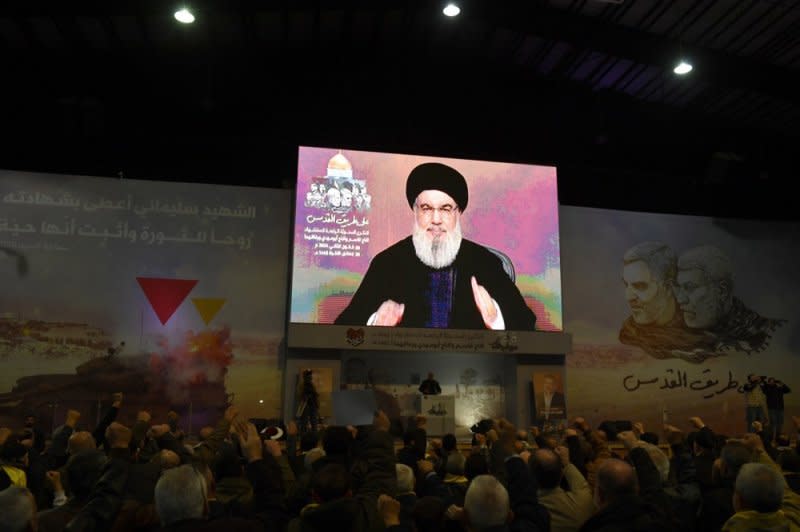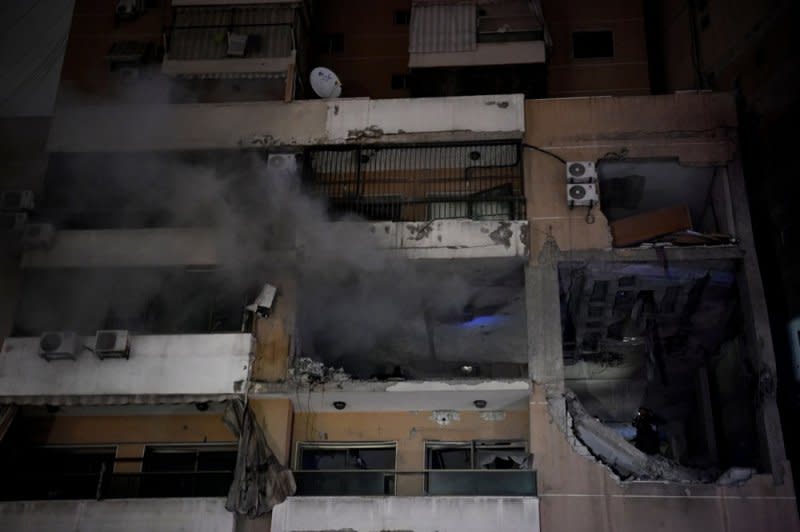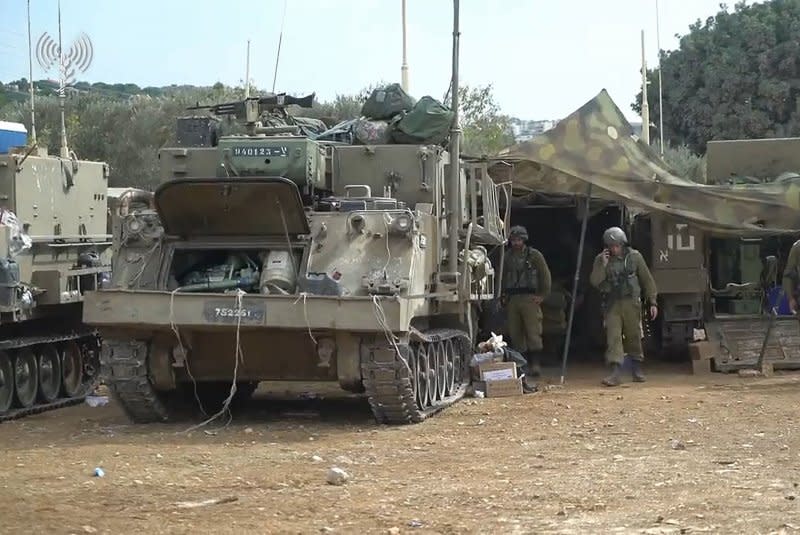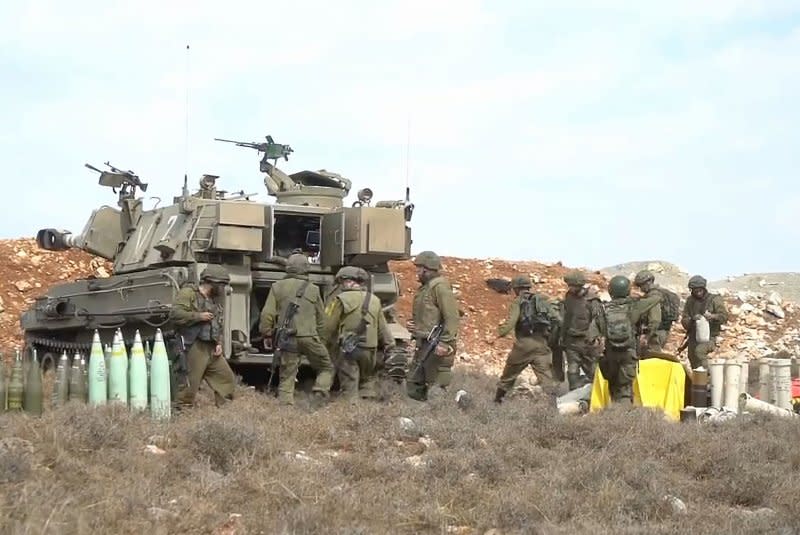Hezbollah chief Seyyed Hassan Nasrallah warns Israel against full-scale war on Lebanon

- Oops!Something went wrong.Please try again later.
- Oops!Something went wrong.Please try again later.
BEIRUT, Lebanon, Jan. 3 (UPI) -- Hezbollah leader Seyyed Hassan Nasrallah warned Israel on Wednesday that launching a full-scale war on Lebanon would be "very costly," and that the assassination of a senior Hamas leader in Beirut would not go unpunished.
"If the enemy thinks of launching a war on Lebanon, then our fighting will be without limits, ceiling, rules or restraints and he knows what I mean," Nasrallah said of Israel during a speech broadcast live via video at a rally to commemorate Iranian Gen. Qasem Soleimani on the fourth anniversary of his assassination in a U.S. drone strike in Iraq.
Referring to Hezbollah's "missiles, capabilities and men," Nasrallah emphasized: "This is all to say that we are not afraid of war and not hesitant...Who thinks of [engaging] in a war with us, he will regret it if God wills."
Nasrallah, whose fighters have been battling Israeli troops along the Lebanese border since the Gaza war broke out in October, warned that such a wider war will be "very, very, very costly."
He explained that his fighters have been battling since Oct. 8 along the border with Israel in a "controlled" way, taking into consideration Lebanon's precarious conditions. However, he said that resulted in "paying a high price" -- a great number of Hezbollah men killed, about 120.

The Hezbollah chief said his group joined the battle a day after Hamas' attack on Israel sparked the war to support the Palestinian people and resistance in Gaza.
By opening the Lebanese front, Hezbollah prevented Israel from waging a surprise war on Lebanon, he said. Otherwise, the Lebanese "could have woken up during the night and Israel destroyed everything in this country because the international community is supporting it."

Nasrallah described the Tuesday assassination of a senior Hamas leader and his companions in an Israeli strike in Beirut's southern suburbs, Hezbollah's stronghold, as "a big and dangerous crime."
He said it was the first time his stronghold has been "targeted in that way since 2006," when Israel destroyed large parts of the southern suburbs during a 33 day-war with Hezbollah.

Saleh al-Arouri, 58, who served as Hamas' deputy politburo leader and its military commander of the West Bank, was killed in the drone attack, along with two commanders of Ezzedine al-Qassam Brigades, Hamas' armed wing, and four other members of the Palestinian group.
Al-Arouri was a founding commander of the brigades and has been living in Lebanon since 2018. He was imprisoned twice in Israeli jails for a total of 18 years before being released in 2010. He was known to be the coordinator between Hamas and Hezbollah and Iran.
"This dangerous crime will not stay without response and punishment," Nasrallah said.
His retaliation threats would either deter Israel or increase fears of a full-scale war between the two battling forces, which have been engaged in daily fighting mostly restricted to parts of southern Lebanon and northern Israel, resulting in numerous deaths, destruction and displacement on both sides.

